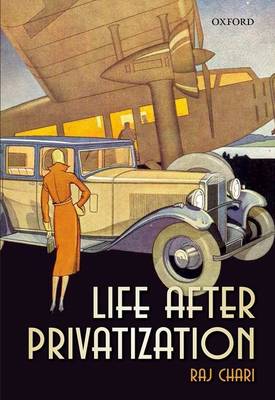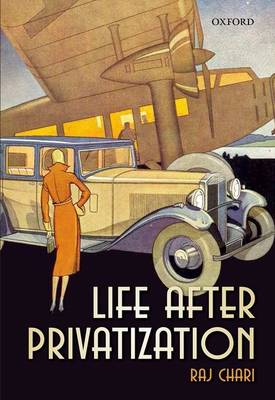
- Retrait gratuit dans votre magasin Club
- 7.000.000 titres dans notre catalogue
- Payer en toute sécurité
- Toujours un magasin près de chez vous
- Retrait gratuit dans votre magasin Club
- 7.000.0000 titres dans notre catalogue
- Payer en toute sécurité
- Toujours un magasin près de chez vous
Description
Life After Privatization offers a refreshing and original theoretical conceptualization of what happened to stateowned enterprises after they were privatized from the late 1970s onwards. Some privatized firms have become today's European and global giants, 'Alphas', merging with or acquiring other firms, whereas other firms, 'Betas', have been taken over by Alphas or other sectoral leaders. The book raises questions such as which privatized firms in the airline, automobile, and the electricity sectors in the UK, France, Germany, Italy and Spain are Alphas and Betas today? And why? Building on a variety of themes from both Political Science and Business Studies, it considers a comprehensive set of explanations both internal and external to the firm, to analyse why a firm may become an Alpha or a Beta. The evidence shows that while internal factors are important, the more external, political, factors are necessary and sufficient to explain why a firm becomes an Alpha or a Beta. This includes the impact of liberalization, the roles of states, and the actions of regulators that are lobbied by firms. Based on exhaustive evidence, Life After Privatization concludes with a novel inductive theory, which offers a significant step forward for social science scholars' and practitioners' understanding of the 'politics' businesses face in global markets.
Spécifications
Parties prenantes
- Auteur(s) :
- Editeur:
Contenu
- Nombre de pages :
- 296
- Langue:
- Anglais
Caractéristiques
- EAN:
- 9780199658312
- Date de parution :
- 16-06-15
- Format:
- Livre relié
- Format numérique:
- Genaaid
- Dimensions :
- 236 mm x 157 mm
- Poids :
- 612 g

Les avis
Nous publions uniquement les avis qui respectent les conditions requises. Consultez nos conditions pour les avis.






